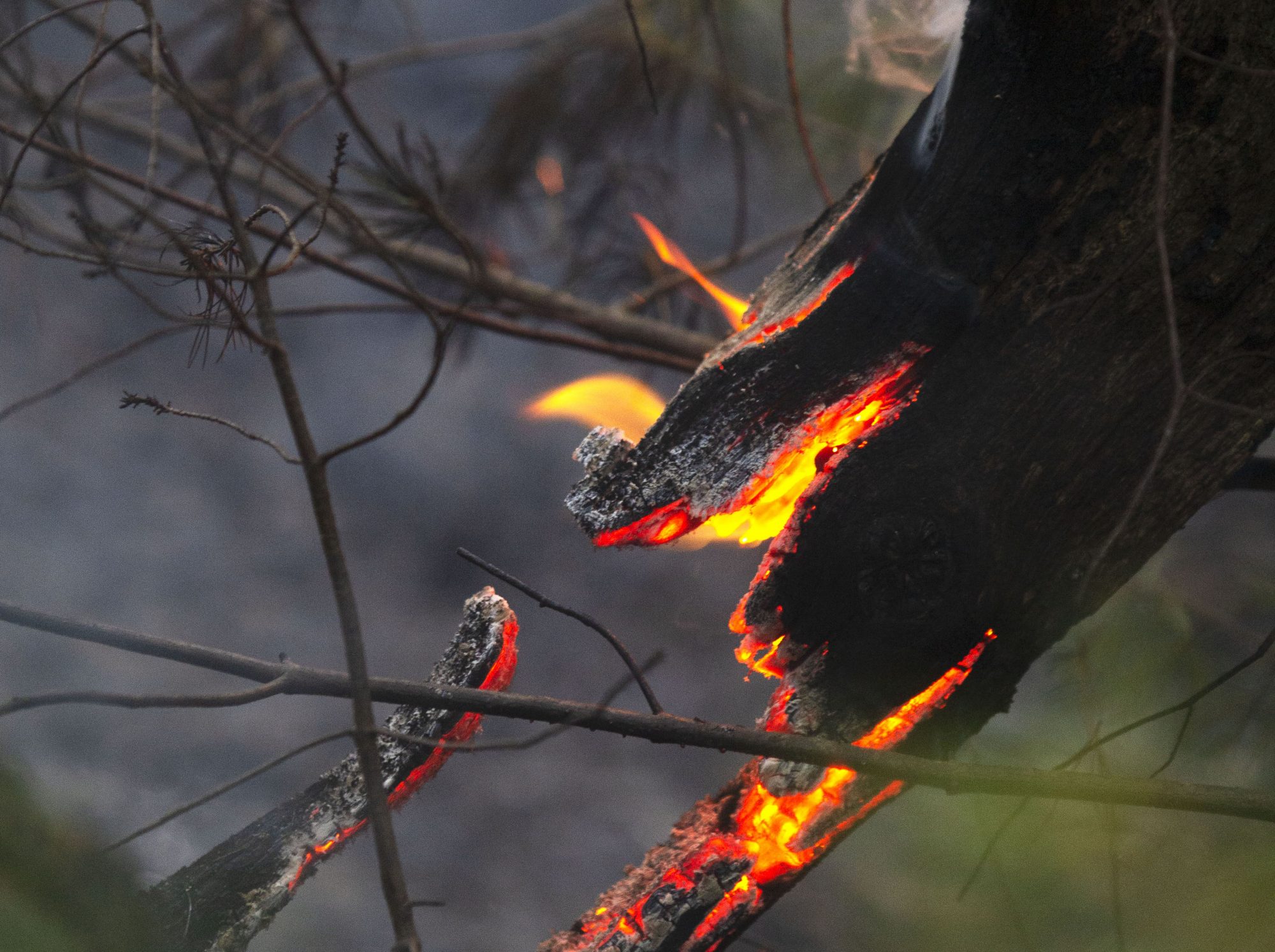LYNN — The Lynn Woods Reservation will be protected from developers thanks to a conservation restriction law signed by Gov. Charlie Baker earlier this month that would allow park rangers to apply for state grants and funding.
Now, after a number of brush fires burned through 26 acres of forest over the course of five days, officials believe the law could help restore the charred park.
Lynn Woods Reservation Park Ranger Daniel Small said that while the fires might have caused irreversible damage to certain aspects of the reservation’s wildlife and ecosystem, the Chapter 187 conservation law, which was written to preserve the area as a forest park, might facilitate state support for reforestation efforts after the fires burn out.
“I was told that they’re in the process, which went on for a decade, that we would have better access to some of the state resources,” Small said. “The Governor just signed it a week ago […] pretty much what the goal was, from the people who worked on it, was to keep everything like it is — that the boundaries of Lynn Woods today will be the boundaries of Lynn Woods for a hundred years, and that it wouldn’t be repurposed to some other use.”
Small said that on a local level, the community group Friends of Lynn Woods is already discussing ways that the community can restore wildlife once the fires are knocked down.
“I was talking to some members of Friends of Lynn Woods last night, and they were saying that this might be an opportunity to get some community interest and try to restore some of these areas […] and we’re probably going to need outside help too,” Small said. “On one hand, it’s a complete tragedy, but on the other hand, some of these things we can recreate, we can replant.”
In a written statement, Lynn Fire District Chief Joseph Zukas said that the legislation might lead to additional support from the State Forestry.
“It could mean we get more help from the state in times like this from the State Forestry,” Zukas said.
Small said that while trees can be replanted, there are some unique species of rattlesnake and insect-eating vegetation that will likely be gone forever in the fires’ aftermath.
“The only wetland in Lynn Woods that had sundews, it’s an insect-eating plant that is really dependent on soil chemistry, the water chemistry, and there was only one spot that had the conditions that they could grow in, they were growing, they were thriving. As of yesterday, when I left work, the fires were close to that and it was really dry, so I suspect that’s gone,” Small said. “The population of rattlesnakes that were somewhat close to Cornell path, and they’re endangered in Massachusetts, there are very few places that still have them, that’s probably gone, they’re probably all dead.”
Small said the name of the Lynn Woods’ Cornel Path came from the Latin name for the dogwood trees that lined the path, Cornus florida. He said that in response to the trees dying off in years past, he and a pack of cub scouts planted dogwood trees in the area 18 years ago. Those trees, he said, have likely all burned down in the last five days.
“Maybe 18 years ago, I got a whole bunch of dogwood seedlings and a local cub scout pack, they came up and planted the dogwoods. Dogwoods grow slowly, and they take forever to bloom, and I think about five years ago, they started to bloom and the valley along the trail began to bloom with dogwoods. I suspect that’s all gone now,” Small said. “It really trashed some things that we can’t replace, that are gone, and it’s really sad. Those cub scouts are out of college now, and their dogwoods are finally blooming, they could walk out there and see them, but they’re all gone, I’m assuming.”
Anthony Cammalleri can be reached at [email protected]

